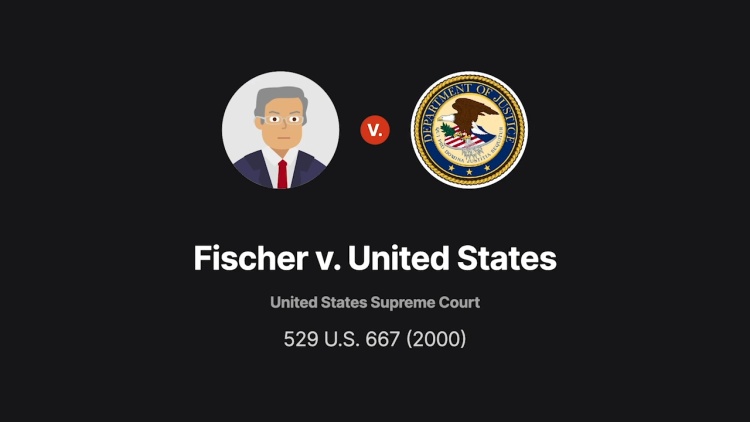Fischer v. United States
United States Supreme Court
529 U.S. 667 (2000)
- Written by Robert Cane, JD
Facts
Jeffrey Fischer (defendant) was president and part owner of Quality Medical Consultants, Incorporated (QMC). Fischer procured a $1.2 million loan from West Volusia Hospital Authority (WVHA) for QMC. WVHA operated two hospitals, which both received millions in Medicare funds. Medicare funds are often disbursed in advance of the rendering of services and reflect more than just the immediate costs of treating individual patients. The funds were intended to help develop and maintain the operation of patient-care facilities and activities. QMC used the loan proceeds improperly and illegally. Among other things, QMC paid a $10,000 kickback to WVHA’s chief financial officer who had negotiated the loan with Fischer. Fischer was indicted for defrauding an organization that receives benefits under a federal assistance program and for paying a kickback to one of its agents, in violation of 18 U.S.C. § 666(a)(1)(A) and § 666(a)(2), respectively. Fischer was convicted by a jury. The district court sentenced him to 65 months in prison followed by three years of supervised release and ordered him to pay restitution of $1.2 million. Fischer appealed to the United States Court of Appeals for the Eleventh Circuit, arguing that WVHA was not an organization that received benefits in excess of $10,000 under a federal program as required by § 666. The appellate court affirmed the convictions. Fischer appealed to the United States Supreme Court.
Rule of Law
Issue
Holding and Reasoning (Kennedy, J.)
Dissent (Thomas, J.)
What to do next…
Here's why 907,000 law students have relied on our case briefs:
- Written by law professors and practitioners, not other law students. 47,100 briefs, keyed to 996 casebooks. Top-notch customer support.
- The right amount of information, includes the facts, issues, rule of law, holding and reasoning, and any concurrences and dissents.
- Access in your classes, works on your mobile and tablet. Massive library of related video lessons and high quality multiple-choice questions.
- Easy to use, uniform format for every case brief. Written in plain English, not in legalese. Our briefs summarize and simplify; they don’t just repeat the court’s language.





